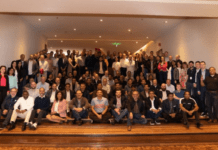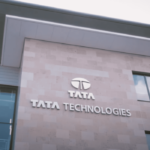Given the continuous growth and development in the field of artificial intelligence (AI) and robotics, it is highly unlikely for any facet of our day-to-day life to be bereft of AI interference. With the extensive tasks that human resources have at hand, a growing reliance on AI to assist in some processes is being observed across industries.
A common use of such technology is in the complicated process of hiring. In order to sift through applications for particular positions, HR now relies more on automated software programmes, to speed up the hiring process. The system allows recruiters to sift through thousands of applications quickly, by finding the best matches to the profile. These automated hiring software are designed to scan resumes and filter out applications unsuitable for the role on the basis of a keyword search.
“Companies need to have an auditing system in place, to check what has been shortlisted and what has been rejected, and to gauge whether the tool is working or not”
Krish Shankar, group head- human resources, Infosys
For mass recruitments, the tool aids recruiters in narrowing down their choices for a particular role.
Although it is a highly useful HR technology, it does come with shortcomings. A recent study published by the Harvard Business School, titled ‘Hidden Workers: Untapped Talent’, sheds light on the drawbacks of hiring software. The study claims that the software mistakenly rejects millions of qualified people!
If that is really true, AI involvement may actually lead to talent spillage during hiring. However, Krish Shankar, group head- human resources, Infosys, believes that these software are essentially problem solvers, and therefore, necessary, especially in large companies. “When a company is hiring in bulk, it is rather cumbersome to review each application manually. Hence, one needs to opt for a software to ease recruitment,” he points out.
When an applicant tracking system, a software that enables electronic handling of recruitment, handles a resume with a gap of six months or more, it automatically rejects the application, reveals the study. As a result, highly qualified candidates who have recent gaps may not even be considered by these automated hiring software, for the sole reason that they’re designed to believe that less gap equals more readiness in terms of job requirements.
As machine learning continues to improve, Shankar believes that the software would become smarter and improvements would be made gradually.
“No tool is perfect. If a tool is good and has good machine learning, it will definitely improve,” believes Shankar. In order to avoid talent spillage and keep a check on the efficacy of the hiring software used, “Companies need to have an auditing system in place, to check what has been shortlisted and what has been rejected, and to gauge whether the tool is working or not,” suggests Shankar.
“I believe, the art of creating resumes will flourish and grow as an industry, with the use of AI in hiring becoming more prevalent”
Sriharsha Achar, CHRO, Star Health and Allied Insurance Company
The tool works by analysing keywords in the resume of a person. Therefore, in order to get through the tool, candidates must incorporate relevant keywords. “The point is, the tool picks up keywords. If people are missing out on opportunities, their passion towards the field must get reflected in the keywords used in their CVs,” Shankar advises.
Sriharsha Achar, CHRO, Star Health and Allied Insurance Company, says that in order to get through the filter of AI, it would be a good idea for job aspirants to seek advice from experts who know the tool. “I believe, the art of creating resumes will flourish and grow as an industry, with the use of AI in hiring becoming more prevalent,” he says.
However, Achar believes that human intervention is paramount in hiring, and artificial intelligence will not be able to replace it in the foreseeable future. He points out several factors need to considered while recruiting someone. One needs to interview the candidates personally and gauge them on multiple angles before making an offer. A human being at the other end will always be more productive than any artificial system. While AI can certainly do a lot, it can never take over human judgement,” he says.
“When one is hiring for talent, which cannot be necessarily gauged on the basis of qualifications, automation will not work”
Amit Sachdev, CPO, Tata iQ
Amit Sachdev, CPO, Tata iQ, talks of two facets to the use of AI in hiring. According to him, skill-based hiring is complemented well by AI, but talent-based hiring is more complicated and requires human intervention to gauge the potential hire better.
It is important to understand the landscape of hiring. The question to be answered is, whether one is hiring for skill or for talent? If it is skill that one wishes to hire, then automation is helpful in the process. For instance, it would make sense for a company, such as TCS, to opt for automated hiring if it is looking at recruiting one lakh people with the same set of skills. However, “when one is hiring for talent, which cannot be necessarily gauged on the basis of qualifications, automation will not work,” asserts Sachdev.
Value our content... contribute towards our growth. Even a small contribution a month would be of great help for us.
Since eight years, we have been serving the industry through daily news and stories. Our content is free for all and we plan to keep it that way.
Support HRKatha. Pay Here (All it takes is a minute)




































